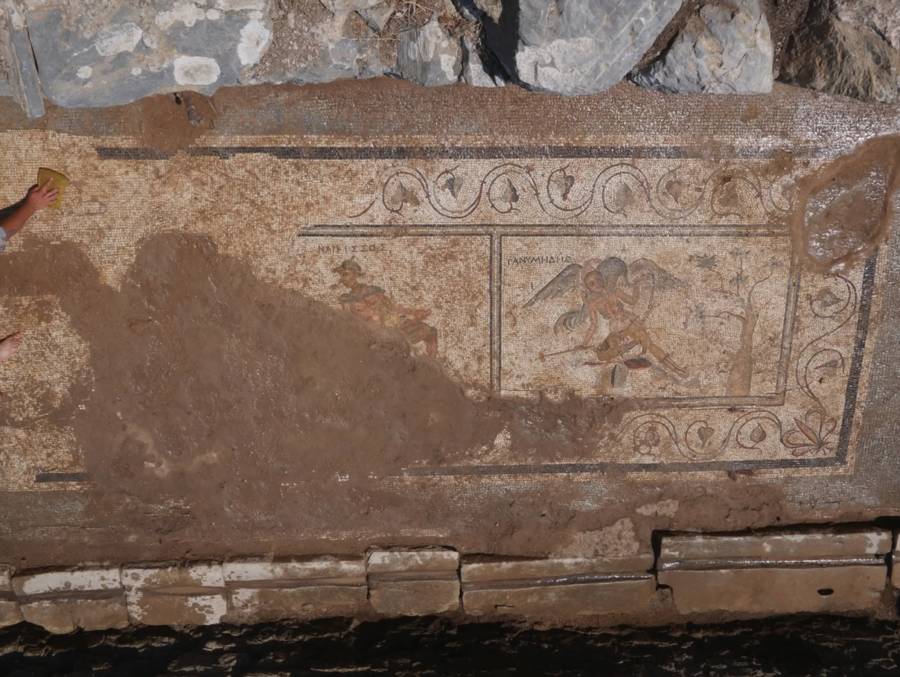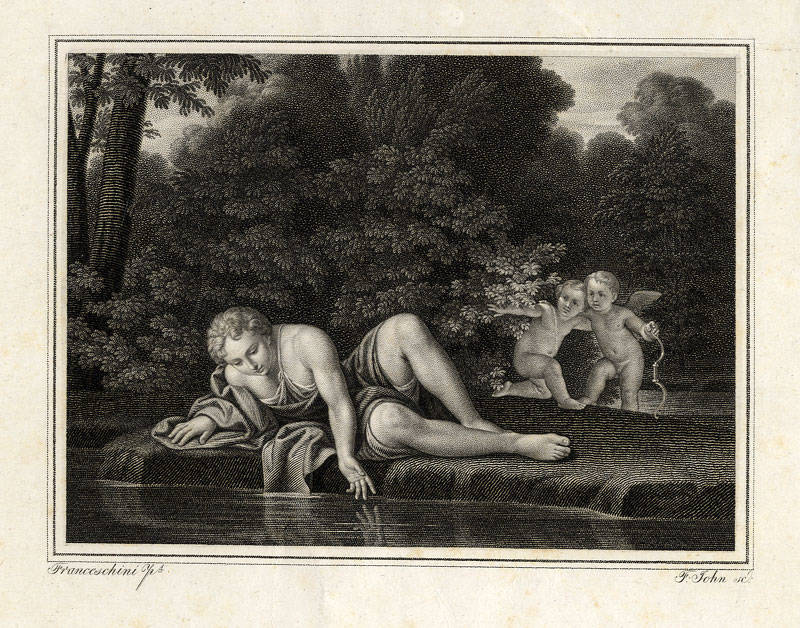"I think this was really the most intimate piece of evidence that we have of the humanity who lived and breathed and worked and played here at our ancient city."

The mosaics found on the floor of a second-century latrine in Turkey.
Hidden for thousands of years in the ruins of the coastal city of Antiochia ad Cragum was evidence that ancient Romans were just as immature as we are when it comes to bathroom humor.
Archaeologists recently discovered mosaics depicting dirty jokes inside of a Roman latrine in Turkey dating back to the second century, according to Live Science. The pictures showcase notable figures in ancient Greek and Roman myths behaving in a way that you most certainly did not see in your history textbooks.
“We were stunned at what we were looking at,” Michael Hoff, an archaeologist at the University of Nebraska-Lincoln, told Live Science. “You have to understand the myths to make it really come alive, but bathroom humor is kind of universal as it turns out.”
One mosaic depicts a Trojan youth named Ganymedes who, in Greek mythology, is typically shown holding a stick in one hand and a hoop in the other. The stories say that an eagle, who was really Zeus in disguise, kidnapped Ganymedes and brought him to Olympus to be his cupbearer, according to IFL Science.

Wikimedia CommonsA depiction of the traditional story of Ganymede where he is abducted by Zeus in an eagle’s form.
However, in the mosaic, Ganymedes is shown with a sponge in his hand rather than a stick or hoop, most likely referencing the sponges that are used to clean toilets. Zeus is disguised as a heron instead of an eagle and is holding a sponge in his long beak which he is using to dab Ganymedes’ penis, insinuating that he was either about to or had just engaged in sex.
“Instantly, anybody who would have seen that image would have seen the [visual] pun,” Hoff told Live Science. “Is it indicative of cleaning the genitals prior to a sex act or after a sex act? That’s a question I cannot answer, and it might have been ambiguous then.”
The other mosaic discovered by the team depicts the notoriously self-obsessed figure Narcissus who is most often shown falling in love with his own reflection in the water. The bathroom drawing shows Narcissus with an abnormally large and ugly nose looking down, presumably admiring his penis, rather than his face.

Friedrich John/Wikimedia CommonsA traditional depiction of Narcissus falling in love with his reflection in the water.
Only half of this scene was preserved but the archaeologists say that the part that is left over along with the setting in which it was drawn provides more than enough information to enjoy the humor.
“Here, the ironic change of this story was made consciously and intentionally: humor. If the function of the structure – in other words, a toilet – is considered, the emphasis and content of humor here is better understood,” art historian and mosaic expert, Birol Can.
The mosaics were discovered as the excavation season came to a close at the dig site on the southern coast of Turkey. Any ancient archaeologic discovery is important, but these comical drawings are especially meaningful because they are giving archaeologists a look at the personalities and lives of those who lived in Antiochia ad Cragum nearly 2,000 years ago.
“The humor that is expressed from these mosaics really does put humanity into our abandoned city. We had been working here for 10 years and we’ve found buildings, markets, temples, and bath buildings – it’s all neat but it doesn’t speak that much to the people who actually lived here,” Hoff told IFL Science. “I think this was really the most intimate piece of evidence that we have of the humanity who lived and breathed and worked and played here at our ancient city.”
Next, check out the hidden pages in Anne Frank’s diary which are filled with dirty jokes. After that, discover why the ancient Romans drew penises on everything.





